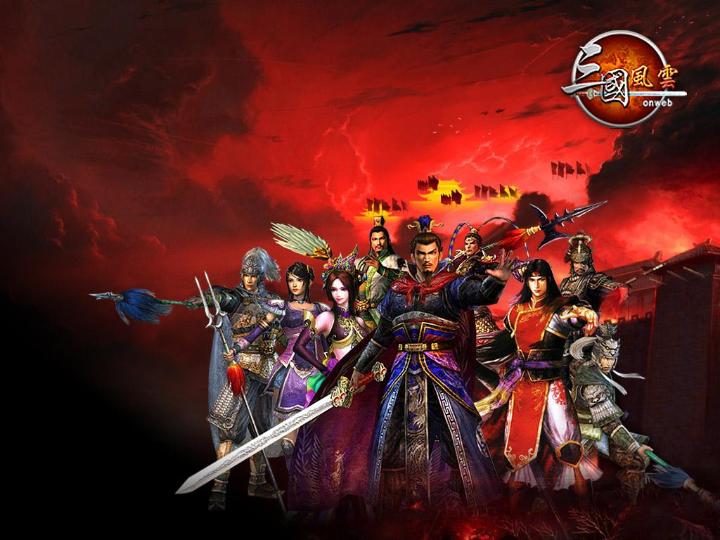
To be sure, China's mobile-gaming market is still highly fragmented and difficult to navigate. It may seem like a wild, uninviting terrain for European and American game developers, but if you look closer, you will be impressed by how much the country wants to play—and pay—for mobile games. This conclusion came from a recent report by China Mobile Games and Entertainment Group Limited (CMGE), a game developer and publisher.
The "serious player" segment will become dominant in 2014, said Xiao Jian, CMGE's CEO. The country has witnessed rapid growth in the number of smartphone users, with IDC predicting 420 million users by the end of this year as Android devices become less expensive.
For starters, Chinese players tend to be reluctant to buy games outright, but are willing to spend a lot within free-to-play games, according to CMGE. At the moment, all top 10 grossing mobile-games in China's Apple App Store are free, with role-player games (RPGs) and collectible-card games (CCGs) taking the lead. Unofficial industry sources suggest these games earn up to US$2 million a month through payments for in-game elements.
But what are Chinese gamers spending on? Avatar upgrades, virtual equipment or weapons, digital currencies, as well as various level-up tools. In particular, cultural characteristics are evident in the behaviour of Chinese gamers.
European and American gamers typically prefer projecting the perception that they have advanced in the game solely through gaming skills and the length of time they spent developing those skills. In reverse, Chinese gamers place more emphasis on in-game upgrades they purchased and brag about them whenever they can, said Xiao. These are equivalent to virtual status symbols, much like luxury cars in the real world, and fits the general atmosphere of conspicuous consumption common in China.
Smart game developers can take advantage of that desire by making it easy for gamers to show off their purchased items, for example, by displaying them on avatars, advised Xiao.
Another uniquely Chinese gaming behaviour that monetises well for gaming brands is the mechanism of 'guild leaders', and how they are expected to buy gifts for other guild members to gain more in-game social status. Again, this behaviour is compatible with Chinese cultural norms that the 'wealthy boss' pays for his 'underlings'.
In terms of distribution channels, in contrast to overseas markets dominated by Google Play and Facebook, the Chinese market is quite cluttered with more than 100 Android app stores to download games from. Among them are Baidu Duokoo, UC, and Wandoujia. Aligning relationships with these multiple channels is a complicated affair. Additionally, the user base of each channel has its own characteristics. Marketers need to configure different distribution and operational strategies based on these characteristics, stated CMGE.
 Strikingly, MMOGs (massively multiplayer online games), like 3 Kingdoms and World of Warcraft, are not played on PCs like in the West but are trending toward mobile devices. "PC-based social gaming basically collapsed due to the switch to mobile but money did not immediately follow", according to Lisa Hanson, founder and managing director of Niko Partners. This was because many Chinese gamers were spending money on the smartphones themselves and playing free games, but the monetisation of mobile games is anticipated to increase.
Strikingly, MMOGs (massively multiplayer online games), like 3 Kingdoms and World of Warcraft, are not played on PCs like in the West but are trending toward mobile devices. "PC-based social gaming basically collapsed due to the switch to mobile but money did not immediately follow", according to Lisa Hanson, founder and managing director of Niko Partners. This was because many Chinese gamers were spending money on the smartphones themselves and playing free games, but the monetisation of mobile games is anticipated to increase.
One strong springboard for foreign games entering the Chinese market has been Tencent, but the company's stringent requirements makes it difficult for the average developer to get a game published, with competitors including CMGE, Chukong Technologies, FL Studio Mobile, iDreamSky, Yodo1, and Kunlun swooping in to play.
Issues that determine success or failure of a game title include presence of effective game promotional channels; variation of payment methods; quality of the gaming product; and localisation according to diversity in cultural customs.
Case in point for localisation: shooter game Airplane War (全民飞机大战) became a hit as the translation for the action of 'shooting airplanes' (打飞机), being Chinese slang for an off-colour sexual reference, works with the local sense of humour. For OMG:TD! with the theme of Greek mythology, gods were renamed: Zeus became 雷神 (“thunder god”), Artemis became 箭神 (“arrow god”), Hephaestus became 焰神 (“flame god”).
Of course, localising every aspect of a game–not just the language, but the art style, music, story narrative and monetisation mechanics for the gaming audience in China is required, said Yodo1 CEO Henry Fong.
Foreign game developers have launched many mobile-games in China, including Angry Birds, Temple Run 2, Plants vs Zombies, Despicable Me: Minion Rush, Frozen, PopCap and Fruit Ninja, Candy Crush Saga, Taming Monster, and Sangokushi Rumble.
Yodo1's Fong anticipates that revenue of the Chinese mobile-game industry will double that of 2013 to anywhere between US$3.2 billion to US$3.6 billion this year. So, game on!


.png&h=334&w=500&q=100&v=20170226&c=1)





.jpg&h=334&w=500&q=100&v=20170226&c=1)
.jpg&h=334&w=500&q=100&v=20170226&c=1)




.jpg&h=268&w=401&q=100&v=20170226&c=1)


.jpg&h=268&w=401&q=100&v=20170226&c=1)

.jpg&h=268&w=401&q=100&v=20170226&c=1)